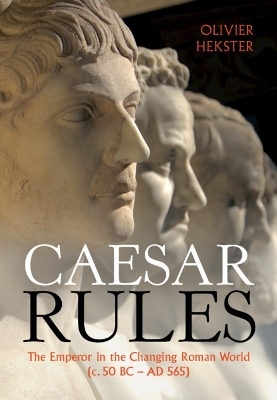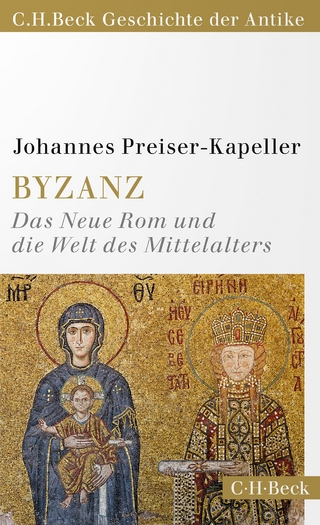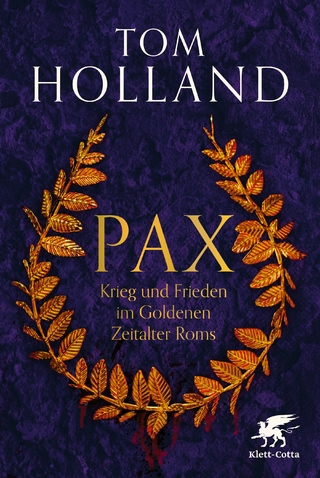
Caesar Rules
The Emperor in the Changing Roman World (c. 50 BC – AD 565)
Seiten
2022
Cambridge University Press (Verlag)
978-1-009-22679-0 (ISBN)
Cambridge University Press (Verlag)
978-1-009-22679-0 (ISBN)
The first systematic analysis of Roman emperorship encompassing the six centuries from Caesar's accession to the death of Justinian. Richly documented and illustrated, it provides a gripping account of the different roles Roman emperors played and of how popular expectations shaped their behaviour.
For centuries, Roman emperors ruled a vast empire. Yet, at least officially, the emperor did not exist. No one knew exactly what titles he possessed, how he could be portrayed, what exactly he had to do, or how the succession was organised. Everyone knew, however, that the emperor held ultimate power over the empire. There were also expectations about what he should do and be, although these varied throughout the empire and also evolved over time. How did these expectations develop and change? To what degree could an emperor deviate from prevailing norms? And what role did major developments in Roman society – such as the rise of Christianity or the choice of Constantinople as the new capital – play in the ways in which emperors could exercise their rule? This ambitious and engaging book describes the surprising stability of the Roman Empire over more than six centuries of history.
For centuries, Roman emperors ruled a vast empire. Yet, at least officially, the emperor did not exist. No one knew exactly what titles he possessed, how he could be portrayed, what exactly he had to do, or how the succession was organised. Everyone knew, however, that the emperor held ultimate power over the empire. There were also expectations about what he should do and be, although these varied throughout the empire and also evolved over time. How did these expectations develop and change? To what degree could an emperor deviate from prevailing norms? And what role did major developments in Roman society – such as the rise of Christianity or the choice of Constantinople as the new capital – play in the ways in which emperors could exercise their rule? This ambitious and engaging book describes the surprising stability of the Roman Empire over more than six centuries of history.
OLIVIER HEKSTER is Professor of Ancient History at the Radboud Institute for Culture and History, Radboud University Nijmegen. He is chair of the international network 'Impact of Empire', and a member of the Royal Netherlands Academy of Arts and Sciences and the Academia Europaea. His publications include Emperors and Ancestors. Roman Power and the Constraints of Tradition (2015).
Introduction: Emperors and expectations; 1. Portraying the Roman Emperor; 2. Playing imperial roles; 3. Being around the emperor; 4. The emperor in capital and provinces; Conclusions: Emperors in a changing world.
| Erscheinungsdatum | 08.12.2022 |
|---|---|
| Zusatzinfo | Worked examples or Exercises |
| Verlagsort | Cambridge |
| Sprache | englisch |
| Maße | 177 x 250 mm |
| Gewicht | 920 g |
| Themenwelt | Geschichte ► Allgemeine Geschichte ► Altertum / Antike |
| ISBN-10 | 1-009-22679-7 / 1009226797 |
| ISBN-13 | 978-1-009-22679-0 / 9781009226790 |
| Zustand | Neuware |
| Informationen gemäß Produktsicherheitsverordnung (GPSR) | |
| Haben Sie eine Frage zum Produkt? |
Mehr entdecken
aus dem Bereich
aus dem Bereich
Krieg und Frieden im Goldenen Zeitalter Roms
Buch | Hardcover (2024)
Klett-Cotta (Verlag)
32,00 €


